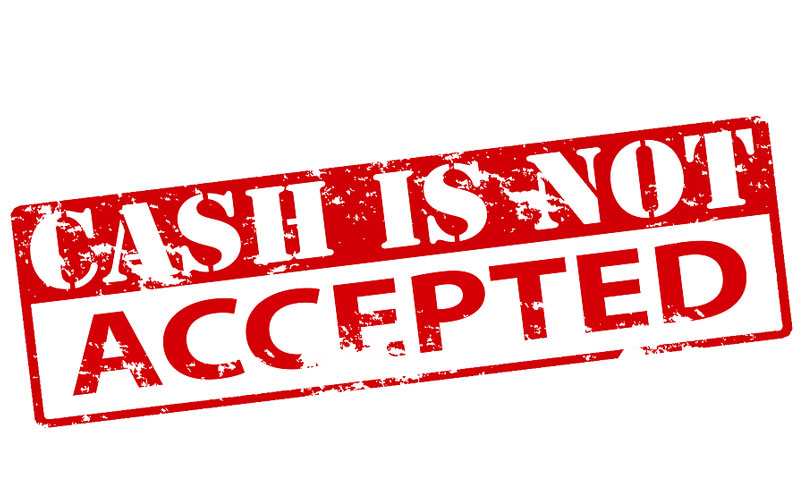Click here to get this article in PDF
 The Federal Reserve’s wholesale embrace of a centralized digital dollar has many Americans wondering if a central bank digital currency (CBDC) would eventually replace cash entirely. Digital currency technology is only going to improve, and the government is feeling the pressure as the world races toward the future of CBDCs. If the status quo of fiat currency isn’t guaranteed, investors face a new set of threats to their privacy and security.
The Federal Reserve’s wholesale embrace of a centralized digital dollar has many Americans wondering if a central bank digital currency (CBDC) would eventually replace cash entirely. Digital currency technology is only going to improve, and the government is feeling the pressure as the world races toward the future of CBDCs. If the status quo of fiat currency isn’t guaranteed, investors face a new set of threats to their privacy and security.
What governments are saying…
In response to strong pushback from their citizenry, governments across the world have attempted to clarify the impact CBDCs would have on cash within their borders.
The European Central Bank has said a “digital euro would complement cash, not replace it.” The Bank of England made a similar promise about a CBDC working alongside cash. It even went a step further by saying it will “continue to issue [cash] for as long as people want to keep using it.” The Bank of Canada echoed those remarks saying “a digital Canadian dollar would not replace cash” and that banknotes would be produced “as long as Canadians want to use them.”
The Federal Reserve of the United States has been decidedly more opaque than other governments in its reassurances to Americans about the potential replacement of cash by a CBDC. In a response to the question on its CBDC FAQ page, the Fed states that it is “committed to ensuring the continued safety and availability of cash and is considering a CBDC as a means to expand safe payment options, not to reduce or replace them.”
Revealingly, the Fed stops shy of conspicuously denying the replacement of cash by a CBDC. Instead, it simply touts its commitment to protecting the security and availability of cash before vaguely commenting that a CBDC would only be considered as an expansion of “safe payment options.”
This unclear messaging could be an example of poor communication or perhaps a carefully worded defense equipping our financial system with plausible deniability if a CBDC were to eventually replace cash.
The International Monetary Fund (IMF) which wields tremendous influence over international and domestic fiscal policies is much more brazen about its support for a CBDC. In fact, the IMF is pushing a worldwide shift to digital currencies. It’s explicitly stated that “CBDCs can replace cash” while championing the adoption of these centralized systems across the world. This has many people worried about the potential for a global CBDC given the centralizing tendency of this technology and its supporters.
The Implications of CBDCs Replacing Cash
Hypercentralization
A CBDC replacement of cash would significantly broaden the reach of the federal government which is already bloated far beyond the vision of the Founding Fathers. It would put the country’s entire financial infrastructure within the hands of a select few political elites.
“Centralization is what people should be worried about. The fact that a very small group of people can control everybody’s…access to the monetary system.”– Precious Metals Advisor Steve Rand
It doesn’t require an active imagination to consider all the possible ways this could be concerning for everyday Americans.
Lack of Privacy
Cash provides a high level of anonymity as people can make transactions without direct surveillance. That privacy disappears completely if a CBDC were to replace cash. A centralized currency gives the federal government full oversight of your financial transactions in real-time. This provides authorities insights into how much money you have, where you’re spending it, how much you’re spending, and more. In many ways, cash is the final refuge of privacy and anonymity Americans have within the financial sphere, and the looming potential of a CBDC could destroy it altogether.
Government Incompetence
Privacy is a serious concern if a CBDC replaces cash, but investors should also worry about old-fashioned government incompetence. The US banking system remains pressured after a series of local bank failures revealed the cracks in its foundation. Plus, the government’s love affair with the abject failure that is Modern Monetary Theory (MMT) continues to increase inflation, devalue the dollar, and raise US debt. A CBDC would only increase the negative effects of the federal government’s fiscal policy failures for everyday investors.
👉 New MMT Report: This FREE report uncovers the untested and controversial economic experiment the US has been running on the American people for decades.
Will CBDCs ultimately replace cash?
 Outside of high-level government circles, nobody knows the likelihood of a CBDC replacing cash entirely. However, an examination of the exponential rate of digitization and previous government actions may offer some insight into the probability of such a development.
Outside of high-level government circles, nobody knows the likelihood of a CBDC replacing cash entirely. However, an examination of the exponential rate of digitization and previous government actions may offer some insight into the probability of such a development.
Currently, 130 countries are engaged in the implementation of a CBDC, representing various stages of progress. Given this widespread adoption, it’s reasonable to assume the full-scale rollout of a CBDC is largely guaranteed. The US has already made significant strides toward full-scale digitization through the signing of Executive Order 14067, secretive research under the banner of Project Hamilton, and the rollout of the FedNow program. In other words, it’s not so much a matter of if but when a CBDC will be launched.
Then, the question becomes how willing the government would be to weaponize this new centralized, traceable, and hyper-regulated monetary system. The US government’s crackdown on decentralized digital currencies, its invasive bank reporting requirements under the Foreign Account Tax Compliance Act (FATCA) and Bank Secrecy Act (BSA), and revelations of its internal surveillance programs don’t instill much confidence in the American public who view a CBDC as simply another potential arm of government overreach.
Perhaps the most egregious and recent example of a government intervening in the private financial affairs of its citizens was in Canada. In 2022, Prime Minister Justin Trudeau unilaterally froze over 200 bank accounts in response to massive protests against his government. It’s easy to cast this alarming corruption aside, but our government hasn’t earned a lot of trust over the past few decades.
Protect Yourself Against the Rise of CBDCs
Savvy investors aren’t waiting to find out if CBDCs replace cash. They’re taking immediate action to protect their privacy, wealth, and future against the rapid digitization of the economy and the ensuing ramifications. Demand for gold and silver is skyrocketing as investors across the world pour into precious metals due to their inherent value, inflation-hedge properties, and stable price action.
“Physical gold in your possession is the original decentralization. It’s the true way to get away from these digital currencies.”– Precious Metals Advisor Todd Graf
Physical precious metals offer all the anonymity, privacy, and control of fiat currency while providing a buffer of inherent value and stability. No matter what happens to the US financial system or the economy, gold and silver assets will maintain their value.
Claim a FREE COPY of our in-depth CBDC report to stay up to date on the development of a CBDC and its potential replacement of cash.
